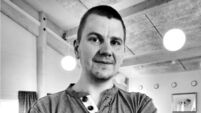US team to be inspired by players lost in 9/11
Mark Bingham and Jeremy Glick may never have been capped by their country but they served it nonetheless when hijackers took over the cockpit of flight United 93 as it flew towards Washington DC.
Bingham, a former University of California, Berkeley, rugby player who won collegiate national championships with his team in 1991 and ’93 had gone on to help found the San Francisco Fog club as well as the Gotham Knights in New York, while Glick had played for the University of Rochester in upstate New York.













